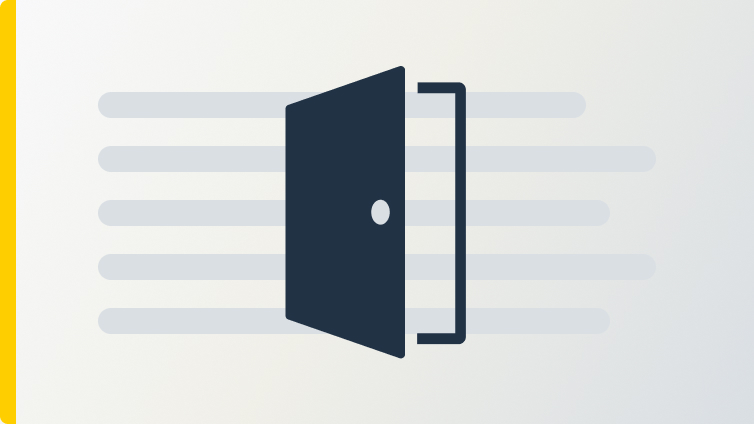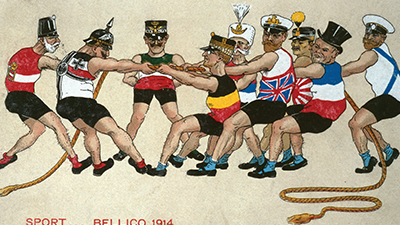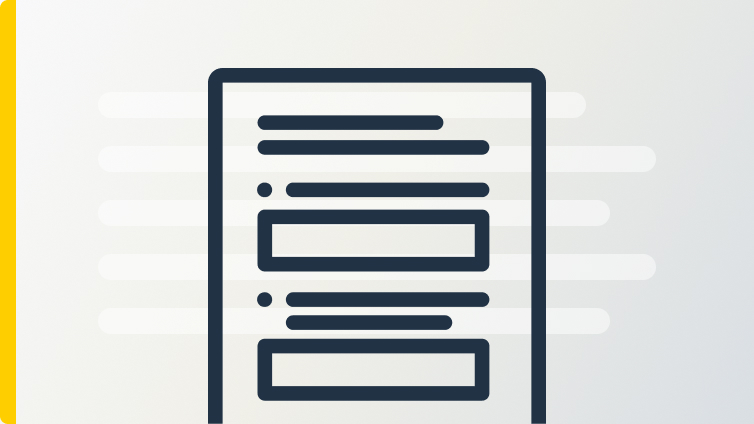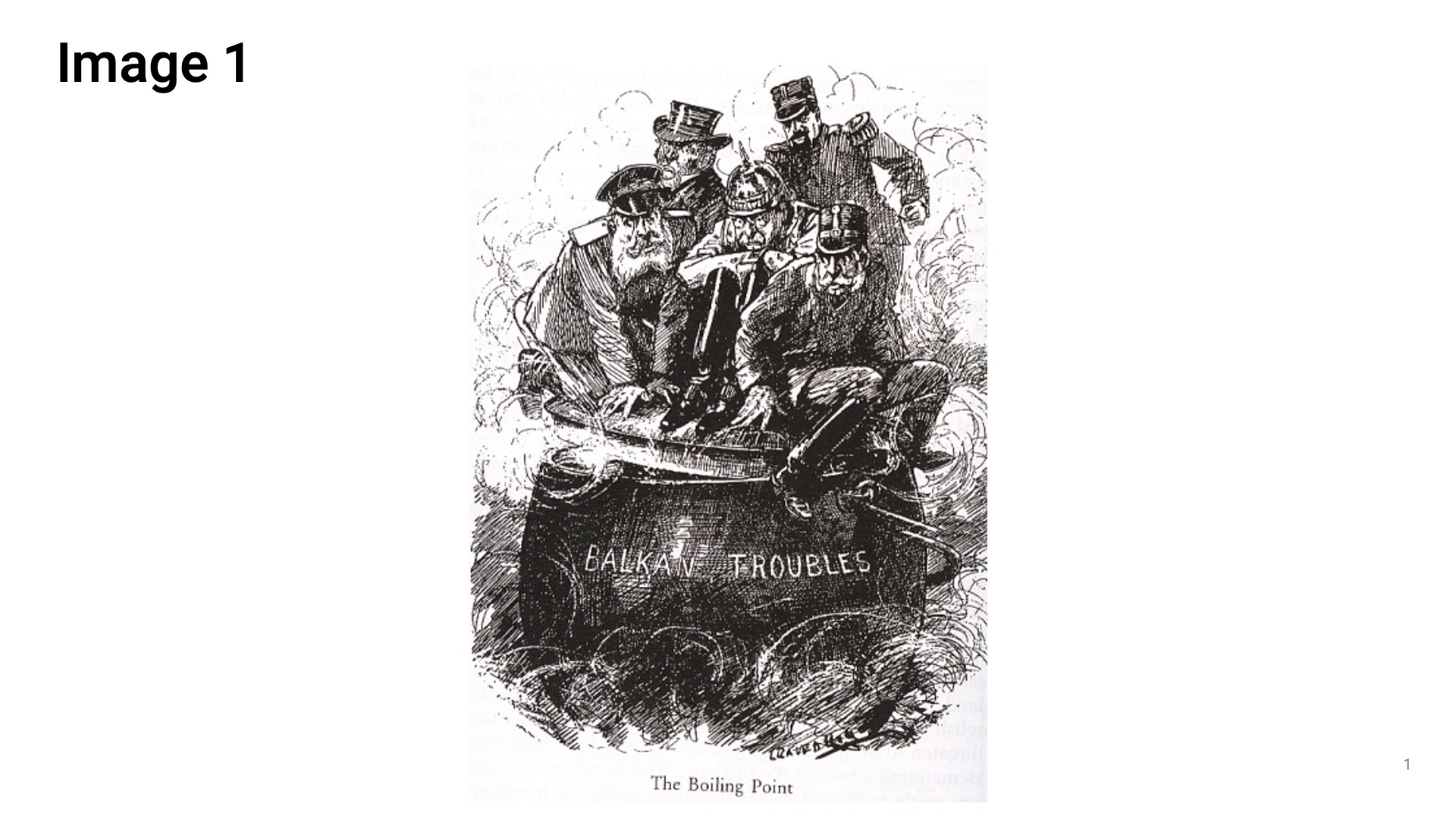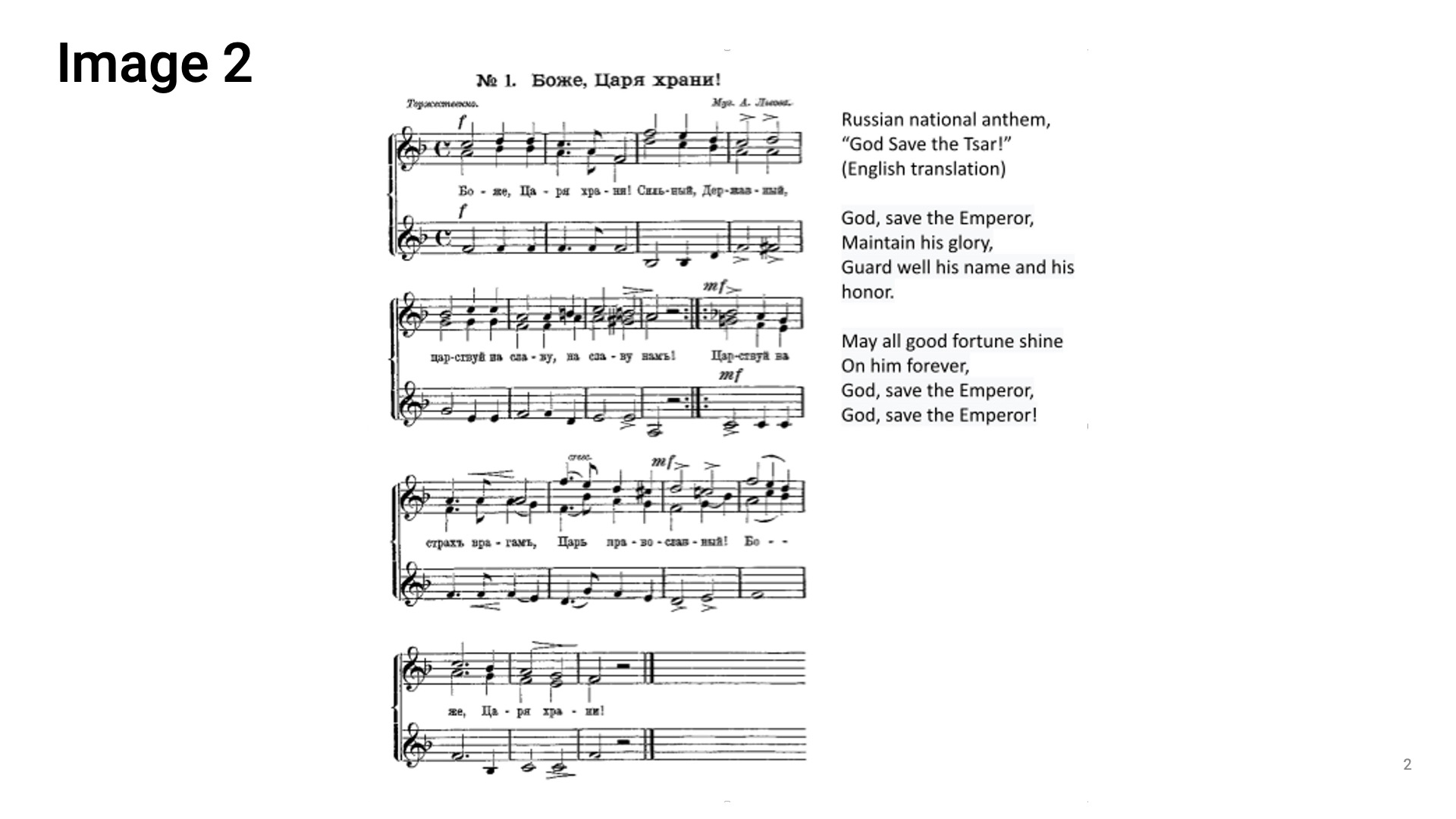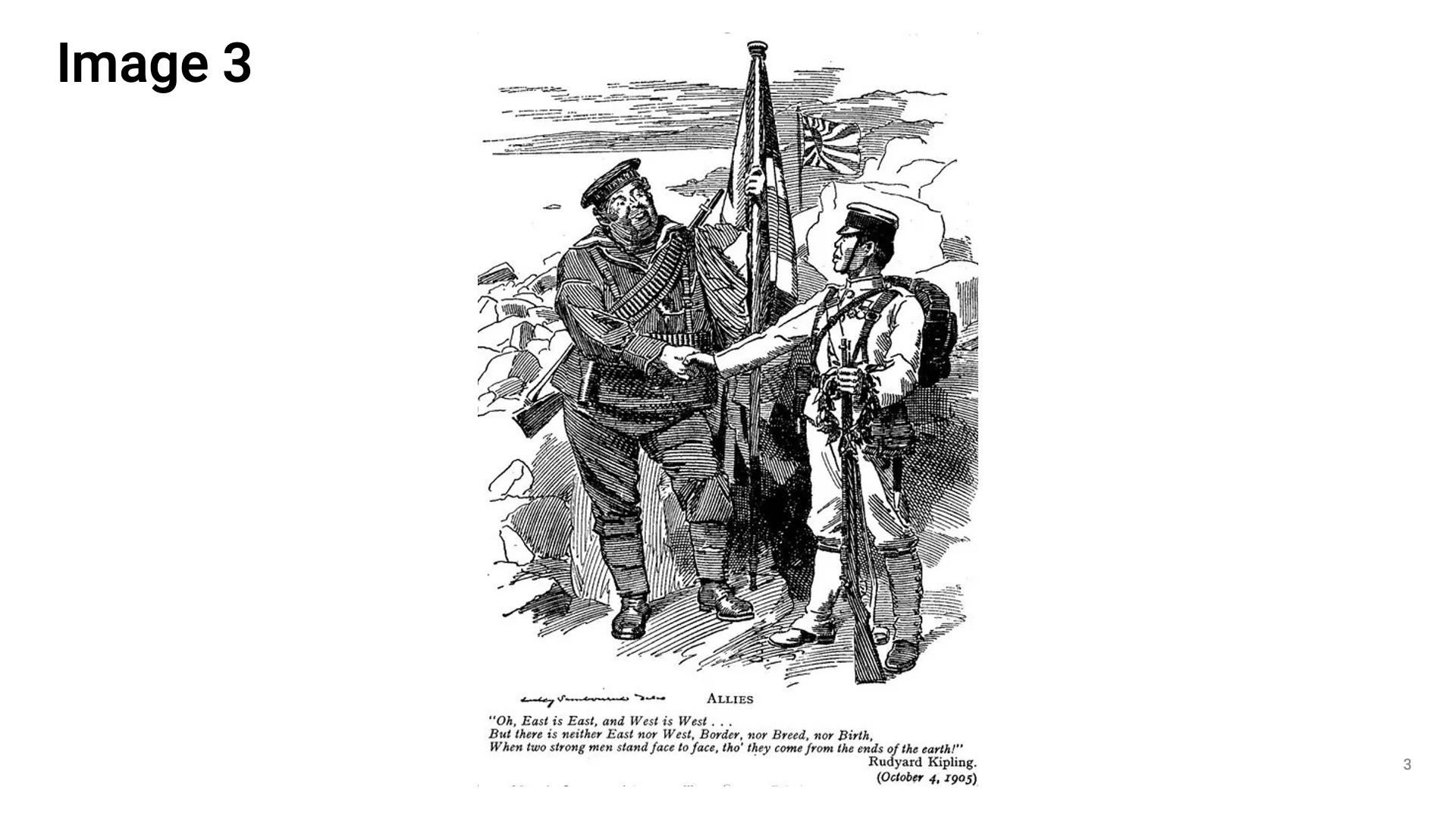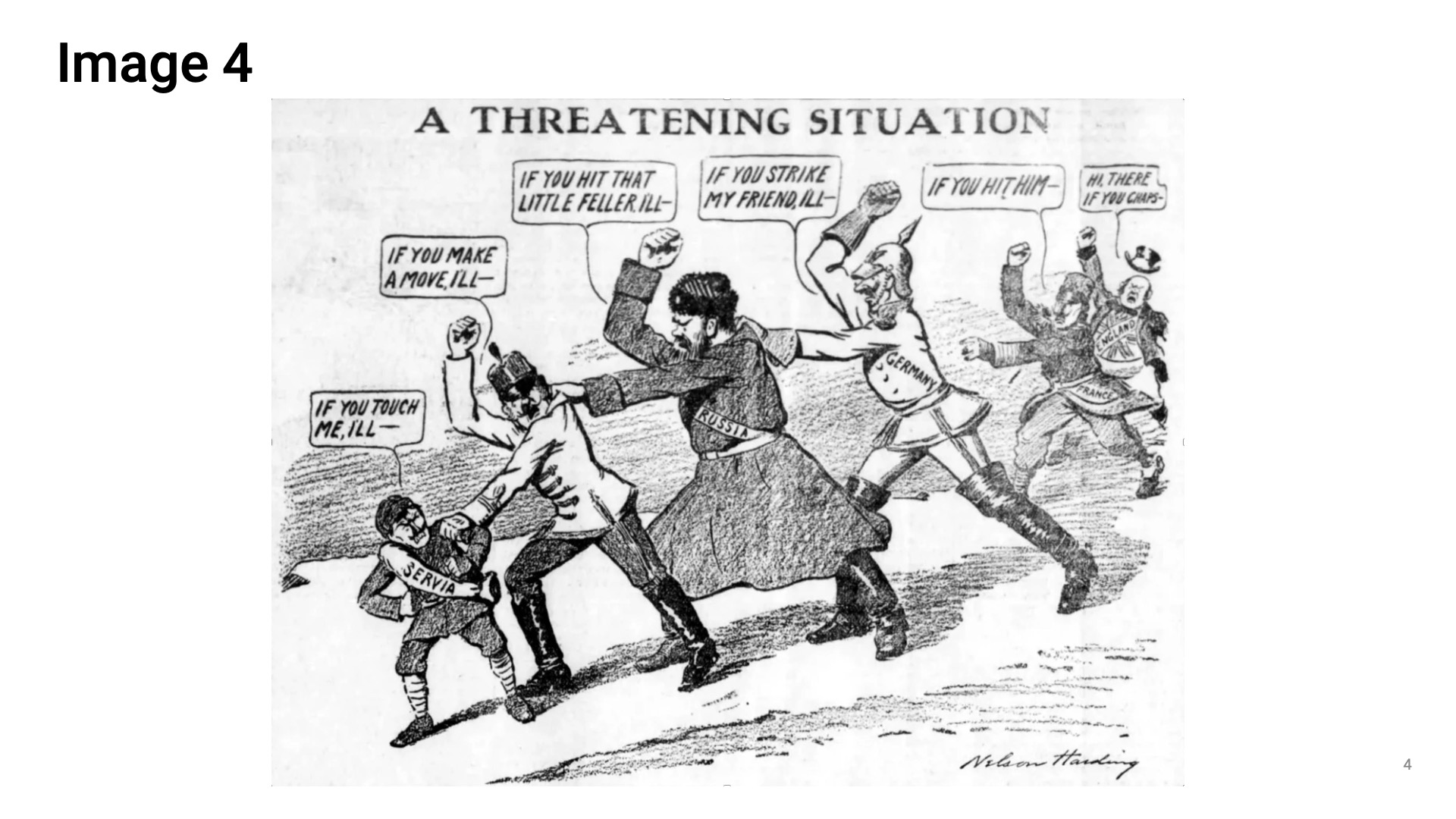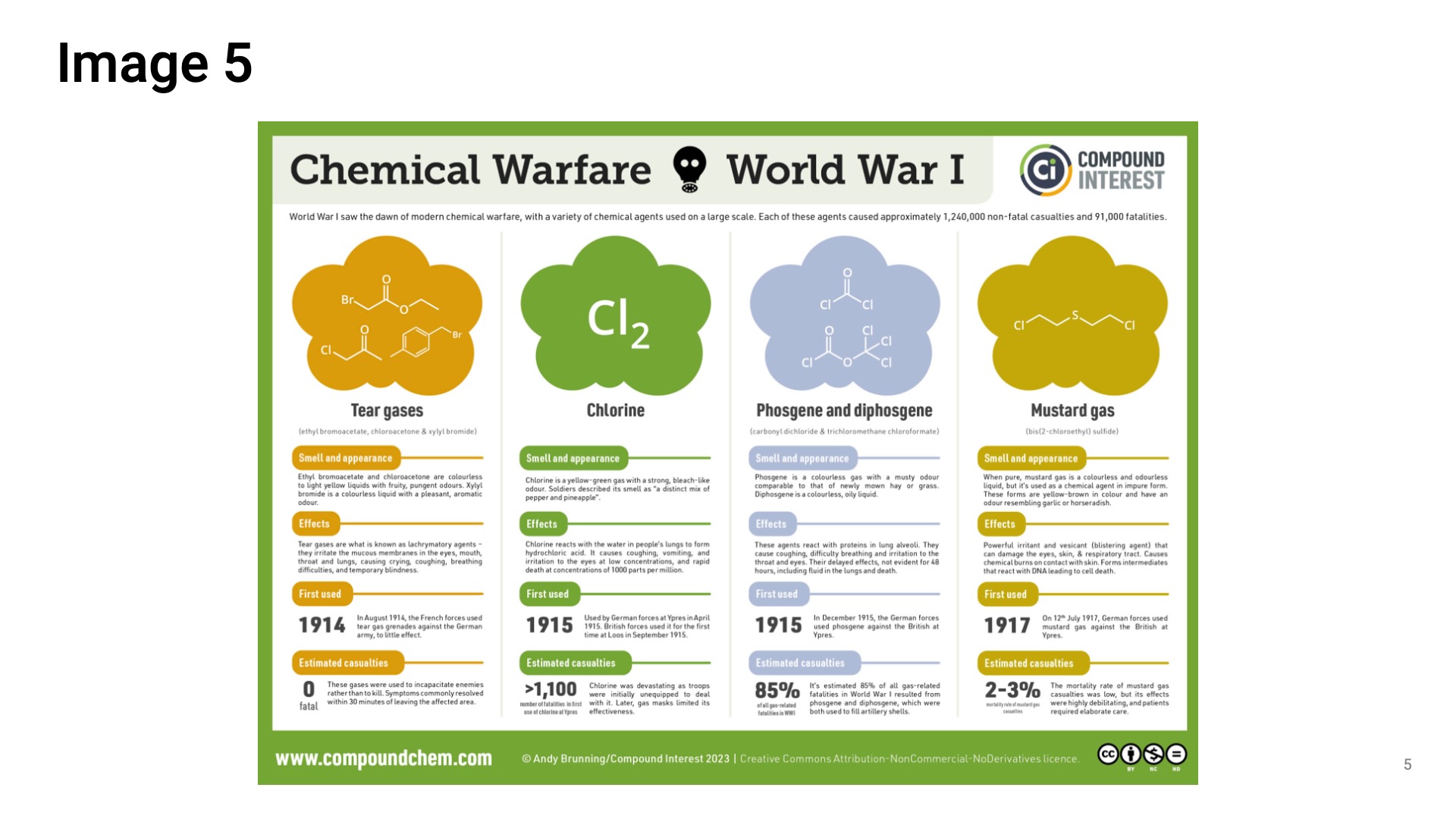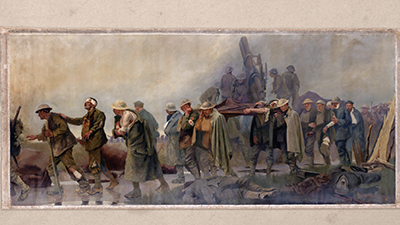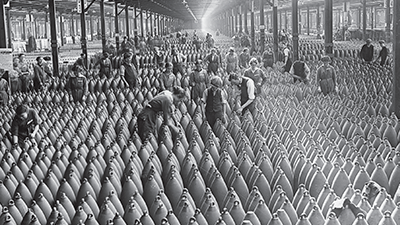Causes of the First World War
Teacher Resources
Driving Question: What caused World War I?
Militaries grew, alliances were cemented, and tensions rose across continents. When war finally came, it was no accident; it was the result of systems pushed to the breaking point.
Learning Objectives:
- Use the historical thinking skill of contextualization to understand the time, place, and circumstances under which the First World War began.
- Use the historical thinking skill of causation to evaluate the factors that led to the outbreak of World War I.
Vocab Terms:
- alliance
- casualty
- conscription
- diplomacy
- interdependence
- mobilization
- propaganda
- total war
Opener: Causes of the First World War
To teach this lesson step, refer to page 2 of the Lesson 6.2 Teaching Guide.
Check out this thread How do you use maps in your classroom? for ideas on incorporating maps into your teaching.
Use your knowledge of the nineteenth century and a 1914 political cartoon to make predictions about the coming war. Who’s involved—and what might happen next?
The Guns of August
To teach this lesson step, refer to page 3 of the Lesson 6.2 Teaching Guide.
Use the Three-Step Reading Worksheet to help evaluate what kinds of supports students need in unpacking texts.
Unpack the tangled web of alliances, rivalries, and political choices that led to war in 1914. These resources will help you sort through long-term causes and immediate sparks.
-
Guiding Questions
-
Before you read
Preview the questions below, and then skim the article. Be sure to look at the section headings and any images.
While you read
Look for answers to these questions:
- Why was Franz Ferdinand assassinated?
- How did alliances lead to war?
- How did imperialism contribute to the war?
- Why did industrialization make a big war more likely?
- Is it possible that the war started accidentally? How?
After you read
Respond to this question: What changes from the long nineteenth century might have helped prevent World War I if they had gone differently?
-
Guiding Questions
-
Before you watch
Preview the questions below, and then review the transcript.
While you watch
Look for answers to these questions:
- Why did Austria-Hungary declare war on Serbia?
- How did alliances pull more countries into the war?
- What role did nationalism play in starting the war?
- Why was Germany worried about fighting Russia and France at the same time?
- How did the Schlieffen Plan affect the war’s spread?
After you watch
Respond to this question: Which frame—communities, networks, or production and distribution—best helps explain the causes of World War I?
"MAIN" Causes of War
A War to End All Wars
To teach this lesson step, refer to page 5 of the Lesson 6.2 Teaching Guide.
Understanding what happened during World War I is key to understanding its effects. Follow the key events of the First World War—where it was fought, how it escalated, and why it became one of history’s deadliest conflicts.
-
Guiding Questions
-
Before you read
Preview the questions below, and then skim the article. Be sure to look at the section headings and any images.
While you read
Look for answers to these questions:
- Why were planning and preparation so important in World War I?
- Why didn’t the Schlieffen Plan work?
- How did industrialization affect the fighting on the Western Front?
- Why did the Ottoman Empire and Italy join the war?
- What was the turning point that helped decide the war’s outcome?
After you read
Respond to this question: How did changes in political communities and production and distribution during the long nineteenth century shape the course of World War I?
Closer: Causes of the First World War
To teach this lesson step, refer to page 6 of the Lesson 6.2 Teaching Guide.
There are a lot of posters to analyze here. Consider using the Three-Step Reading with students to “read” visuals. First, get the big picture. Then, zoom in on details. Finally, think about what the image means. Learn more in the Reading Guide.
Now that you've explored the causes of World War I, hypothesize what the nations involved in the war were thinking as you revisit the political cartoon from earlier in the lesson.
Writing: Causes of World War I
To teach this lesson step, refer to page 6 of the Lesson 6.2 Teaching Guide.
Now that you’ve explored the causes of World War I, it’s time to organize your thinking. These exercises will help you practice using historical sources to build a strong, evidence-based argument about how and why the war began.
Economics of War
To teach this lesson step, refer to page 7 of the Lesson 6.2 Teaching Guide.
An analysis of capitalism and competition for markets adds yet another angle to the causes of World War I. Learn how economic systems played a role in shaping global tensions leading up to 1914.
-
Guiding Questions
-
Before you read
Preview the questions below, and then skim the article. Be sure to look at the section headings and any images.
While you read
Look for answers to these questions:
- What economic arguments were made against the war?
- Why might capitalists have supported going to war?
- How did governments pay for such an expensive war?
- Which countries benefited economically from the war, and why?
- Which countries suffered the most, and how?
After you read
Respond to this question: Why do you think so much time passed after industrialization began before a global war like this broke out?


